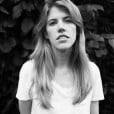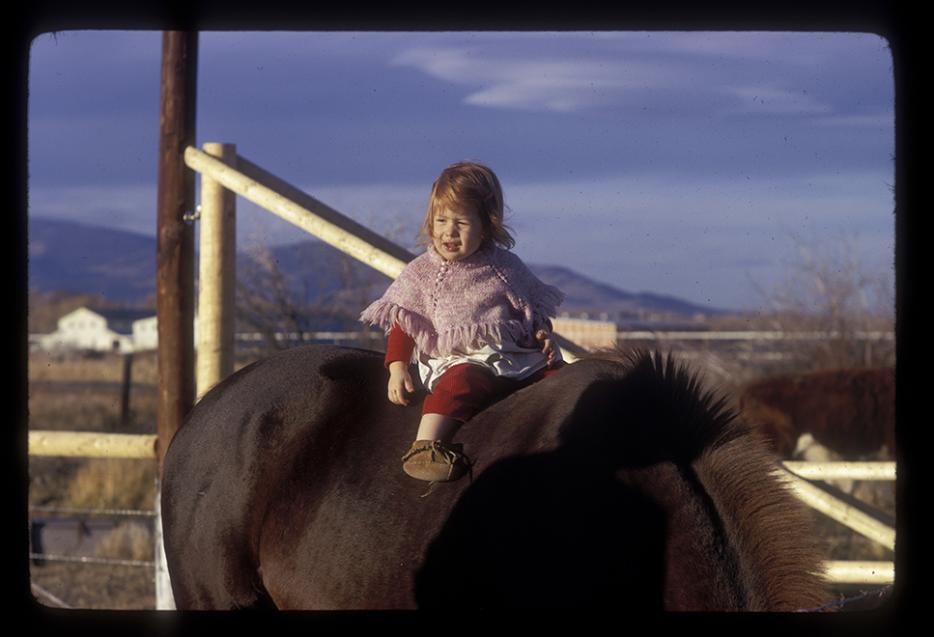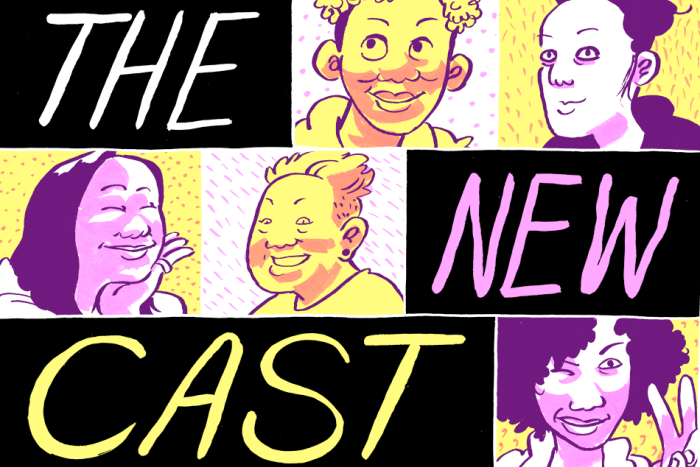The trick to reading Maile Meloy’s work without having an identity crisis is to revert back to the person you were before you thought you had a novel in you. Before I learned this trick, I’d rise from bed after spending an evening with one of her novels, and I’d sit down in front of my own work in progress—smiling! Because her writing had inspired me to be a better writer!—and then I would run screaming from the computer, because her gripping, economical prose made everything I wrote look gloppy, self-indulgent and sentimental in comparison. (Because it was.) Looking to Meloy’s work for writerly inspiration is like looking to a physics professor to teach you higher-level math if you are a golden retriever.
Sometimes, there are perfect authors, and I’m being earnest when I say that Maile Meloy is one of them. Her stories remind readers how to simply be an audience, and if you haven’t yet read her work, I am so happy for you, because it means you can start.
Meloy has written for The New Yorker, among other places, and is the author of two story collections, Half in Love, and Both Ways Is The Only Way I Want It, as well as five novels, including Liars and Saints, A Family Daughter, and the best-selling, three-book Apothecary series for middle-grade readers. Recently, Penguin Random House (hi!) released a tiny, adorable, and aesthetically pleasing hardcover edition of Meloy’s story “Devotion,” which involves rat infestations, is very gross, and comes highly recommended, by me.
Kathleen Hale: “Liliana” has one of the best [first?] sentences in the history of the world: "On a hazy summer afternoon in Los Angeles, while my wife was at work and our children were napping, I answered the ringing doorbell to find my grandmother, two months dead, standing on the stoop." In general, your short stories start with first sentences that evocatively but economically introduce us to the character, his or her world, the stakes. They read almost like thesis statements. Do you think of them that way? Is the first sentence important to you? Do you write the first sentence first, at the end, or is there no pattern? Do you find that you have the entire story in mind before you start, or have there been instances where the story flows in response to that first line?
Maile Meloy: Thank you! That’s so nice of you. I do think the first sentence is all-important. It’s often the first thing I write and it doesn’t usually change that much, which is funny because I never know where the story is going to go, but that first sentence has the DNA of the story in it, somehow. Or should. It’s like the seed out of which the story grows.
Your short stories typically proceed chronologically. Do you write chronologically?
Mostly. I think of stories in chronological terms: what happens next? I love books that jump all over in time, like Jane Gardam’s Old Filth, but I kind of marvel at the structure, I’m not sure how she does it.
What is the writing process like for you? Do you walk around for a few months and let one form in your mind before starting? Do you sit down every day with the same routine and force yourself to move ahead? Does it change? What was it like for you this morning?
When I’m really underway and working every day, I get sort of spaced out. I’m revising a novel now, and my brain feels like a computer that has a giant program running: I’m slow and bad at other tasks, like finding a parking spot and not getting lost. And I send myself notes all the time—my brain is working on the book even when I’m not at my desk.
But in general, I work everything out while I’m actually sitting at the keyboard. I work in the morning, when my brain feels uncluttered. Forcing myself doesn’t help, but I do try to just be there. Sometimes I think that if I had sat down to work on Wednesday instead of Tuesday, the story might have gone a different way, but of course there’s no way to verify that. I’m kind of haunted by that idea in life, too, by those moments where the path might have been altered.
This morning I had a list of three things I wanted to add, and I spent the morning tracing the ramifications of them through the book. I’m mostly making things harder on the characters. I tend to want to take care of them too much in the first draft.
How do you come up with your ideas? And when they occur to you, do you write them down or wait for them to percolate? When you notice a gesture or something else that interests you, do you write it down immediately or see if it sticks? Do you keep a notebook? Do you have a good memory?
I write myself notes on scraps of paper, or send myself emails from my phone, or write ideas in a sort of journal file on the computer, but those notes don’t always make it into anything. Things kind of ferment in my brain and then if they’re useful they show up.
Who are your readers? Not your audience, but the readers who read your work before it’s published? What are the traits, in your mind, of a helpful reader? Is brutal honesty always best, or does helpful feedback balance criticism with praise? Are you sensitive about private feedback or inured to criticism by this point? What is the most constructive feedback you can remember receiving, and what story did it help to improve?
I have a few friends who read things for me, and my husband reads for me, and I have great editors. They’re all very smart and direct, and they all notice different things. I give drafts to them when I don’t know what else to do with it, when it’s as good as I can make it at that moment, and I give one draft to one reader at a time.
I’m not inured to criticism. I would rather get nothing but checks and stars in the margins, and exclamations of delight. There’s often a moment when you first get notes and it’s slightly painful and the advice all seems wrong. But I say thank you, thank you, and I sit with the notes a day or two and I usually find that they’re all pretty much right.
I’ve gotten so much constructive feedback that there’s no one best example. It’s like someone looking at your swimming stroke and saying that you’re not kicking at all. That’s awesome news, because now you know what to do, and you can get a lot better and more efficient, right away. If they don’t have any notes, then you just have to swim faster, or write better. And that’s nearly impossible.
What human behavior (or failing) captivates you most?
The way people, some people, push away the thing they want most, without knowing they’re doing it. They alienate the people they want to draw close, and can’t seem to help it. I don’t know if I’ve written that much about it, but it’s endlessly fascinating and heartbreaking to me in real life.
What are you reading right now?
I just started Helen Oyeyemi’s story collection, What is Not Yours is Not Yours. And I just finished Evicted, by Matthew Desmond, which is incredible, and Our Spoons Came from Woolworths by Barbara Comyns—I love the New York Review of Books reprints. And I just listened to the audiobook of Villette by Charlotte Brontë, which is much weirder than I expected.
Would you be willing to throw together a reading list of personally impactful works? Just stuff off the top of your head.
This is really off the top of my head, just books I’ve loved fairly recently:
Jonathan Strange & Mr. Norrell by Susanna Clarke, Her First American by Lore Segal, Swimming Studies by Leanne Shapton, Being Mortal by Atul Gawande, The Paying Guests by Sarah Waters, The Buried Giant by Kazuo Ishiguro, the Neapolitan books by Elena Ferrante, Between the World and Me by Ta-Nehisi Coates, All My Puny Sorrows by Miriam Toews, The Tsar of Love and Techno by Anthony Marra, We Are All Completely Beside Ourselves by Karen Joy Fowler, The Clothes They Stood Up In by Alan Bennett, The Uninvited Guests by Sadie Jones, On Writing by Stephen King.
In what ways did your MFA program change your destiny? Do you consider your experience at UC Irvine essential to your career?
Everything Geoffrey Wolff told me at UCI shaped me as a writer. He identified my bad habits and brought out my strengths. And he told me I couldn’t be the writer I wanted to be and also be worried about what people thought of me, about being a good girl. I’m trying to live up to his advice all the time. And Michelle Latiolais told me to take two of the stories out of my first collection and start a novel with them, and that became Liars and Saints. I’m forever grateful to them.
Did you write A Family Daughter with the intention of deconstructing another of your novels? Was it more that you remained attached to those characters, or a bit of both? Or did it just evolve naturally?
It was the first time I was writing a novel when I’d already had one out. (For complicated and boring publishing reasons, Half in Love didn’t come out until I’d finished Liars and Saints.) So there was this new thing I knew about, when I started A Family Daughter: what it feels like to have a novel out in the world. You’ve spent all this time alone with a book, in your head and on your computer, and then suddenly it’s out in public, and people are asking you questions about what’s real in it. I told a friend of a friend that she didn’t have to read my first novel and she said, “Oh, but we will. And then we’ll think secret thoughts.” The tiny inward scream that is the only appropriate response to exposure like that never really goes away. It seemed like an interesting thing to write about. I already had these secret-keeping characters from Liars and Saints, so I thought, what if one of them writes a novel? And what if A Family Daughter purports to be the bigger, messier, less-streamlined source material from which a novel like Liars and Saints emerged? A Family Daughter also had to work on its own, as a story with its own plot, if you hadn’t read Liars and Saints. The mental exercise of doing both things at once seemed interesting and entertaining to me, but I didn’t plan it beforehand.
What is the shortest amount of time it has taken you to write a short story? The longest?
The shortest time has been a few weeks, the longest a few years—not solidly, but returning to the story and taking it apart, trying to make it work.
Maybe I’m being presumptuous (maybe you grew up with a million horses, and maintained close personal relationships with under water welders) but I feel as if many of your stories required careful research. Do you enjoy research? In what ways can research be an impetus or impediment to the writing process? Are you researching anything now?
I do research but I try to do it late, to fact-check and add things. I try to get the emotional story, the stuff that happens between people, down first. If I do too much research in advance, I get lost in the facts and the reality of the subject. I feel less free to make things up. So a lot of times in the first draft I’m kind of flying blind.
Your Apothecary books (incredible!) take place in London. Did you spend a lot of time there while writing? Janie and a lot of your characters live through the decade or so post-WWII. What interests you about that time?
I had just read a book called Austerity Britain, 1945-1951, which is all contemporary accounts of post-war Britain, and it was like having a time machine to a moment when everything in the world was shifting. The war was won, but it had been so exhausting, and revealed such horrors about the world. Food was still rationed, everything had been bombed, there were no resources with which to rebuild, Europe was a mess, the Soviet allies were getting scary, the Americans were annoying because they hadn’t suffered in the same way England had. And the nuclear threat created this immense, un-addressable fear, so in the States you have “Duck and Cover” and McCarthyism. I love LeCarré novels, that sense of dread and moral murkiness. It seemed possible to translate for middle school readers, who know all about dread.
Who are some dead writers who have had an impact on your writing?
F. Scott Fitzgerald, Flannery O’Connor, John Cheever, Laurie Colwin, Evelyn Waugh, Stella Gibbons, Nancy Mitford, Merce Rodoreda, Gabriel García Márquez, Madeleine L’Engle, Ellen Raskin.
Who are some living writers who inspire you?
Joan Didion, Philip Roth, Elena Ferrante, Cormac McCarthy, Susanna Clarke, Ann Patchett, Peter Orner, Sheila Heti, Jane Gardam, Philip Pullman, Edwidge Danticat, Sarah Waters, Anthony Doerr, Anthony Lane, Anthony Marra, Zoë Heller, Junot Díaz.
Do you remember the first story you ever wrote? What was it about?
I wrote one very short story at about fourteen, while on a family vacation. It involved a teen love triangle and a big house party and a discovery and a betrayal, and I wrote it in one sitting. It had nothing to do with the family vacation, which I think was the point. I didn’t write another story until I was twenty-one, when I wrote “Kite Whistler Aquamarine” for the first fiction class I ever took, in my last semester of college. It was about a foal that’s born early in cold weather so its feet freeze, and a lawyer taking her client’s young daughter to pick up her mom, who’s getting out of prison. The story ended up almost intact in Half in Love.
Do other mediums ever inspire your work? (Television, film, paintings?) If so, which shows, artists, etc., are you most obsessed with?
Television and films often remind me of big narrative moments that are important, especially with the kids’ books, when I might be caught up in details and reflection. For example: I saw Avatar when I was finishing The Apothecary, and the final fight scene with the villain reminded me that I needed Janie to face off against her nemesis. They needed that one-on-one confrontation. And serialized TV dramas are inspiring and instructive on how to keep a story going and changing. The Sopranos and Breaking Bad and Homeland are such incredible narrative achievements. (And useful if you tend to go too easy on your characters.)
Looking at paintings, I tend to space out a little. I read the little panels, I want things to be relational, I want narrative even when I’m not supposed to.
A little about the recurring motifs in your books. Have you spent a lot of time around horses? What is it that intrigues you most about the relationship between humans and horses?
When my uncle was young and broke, he knew someone who was keeping a racehorse locked up in a trailer, and he talked the guy into selling or giving the horse to him, and he trained it and raced it. Then he had other horses, and we used to go to the track to watch them. I remember sobbing when that first horse died. It’s easy to be sentimental about horses, but humans “break” them and beat them and drug them irresponsibly, and disrupt their social structures. Some people do it in a better way; Natural Horsemanship is beautiful and watching videos of Stacy Westfall free-riding makes me cry, even though I don’t begin to understand the subtleties of what she’s doing. But there was a herd of wild horses in the canyon in Utah where I worked after college, and I found it so moving that there were horses in this country who’d escaped people.
I rode as a kid in a pretty untrained way. My mom had a really sweet horse when I was three, and my friend and I were riding together bareback in a field and we both just slid off to the ground. The horse came back to see if we were okay. When I was about eleven, another friend and I tied our horses badly, and they got spooked and ran and fell and got their legs scraped up. There are few things in my life I’ve felt as guilty about as that.
I ride about once a year now, on unfamiliar horses, which is dangerous and also killingly painful for a few days afterward. It’s like surfing or being in the ocean: You have the illusion of control, when really this thing is so much bigger and more powerful than you are, and you can easily die.
In Half In Love and Devotion you use some very effective, gruesome imagery. (I’m thinking of the face eating, and the colt’s legs falling off as it walked, and the husband dying on the deck after spearing his veins with a paint stick.) Do you have any personal philosophy on when violence works or doesn’t? What’s your opinion as a reader? What about as an author? Have you every thrown away a provocative or haunting scene because it didn’t earn the right to be in the story—and if so, why did it not earn that right?
I don’t have a philosophy about it. There are things in books and movies that are too scary or horrible or upsetting for me. I can’t really take torture, in books or movies; I get nightmares. But otherwise it’s kind of case by case. The Apothecary has a character who grew up during the Japanese invasion of Nanking. There was one scene in her memory that was too scary and I took it out. But I think it’s okay to have a version of a terrible historical event in the book. Kids understand that the world is dangerous and unfair. Reading is one of the ways you deal with that, and practice being brave.






